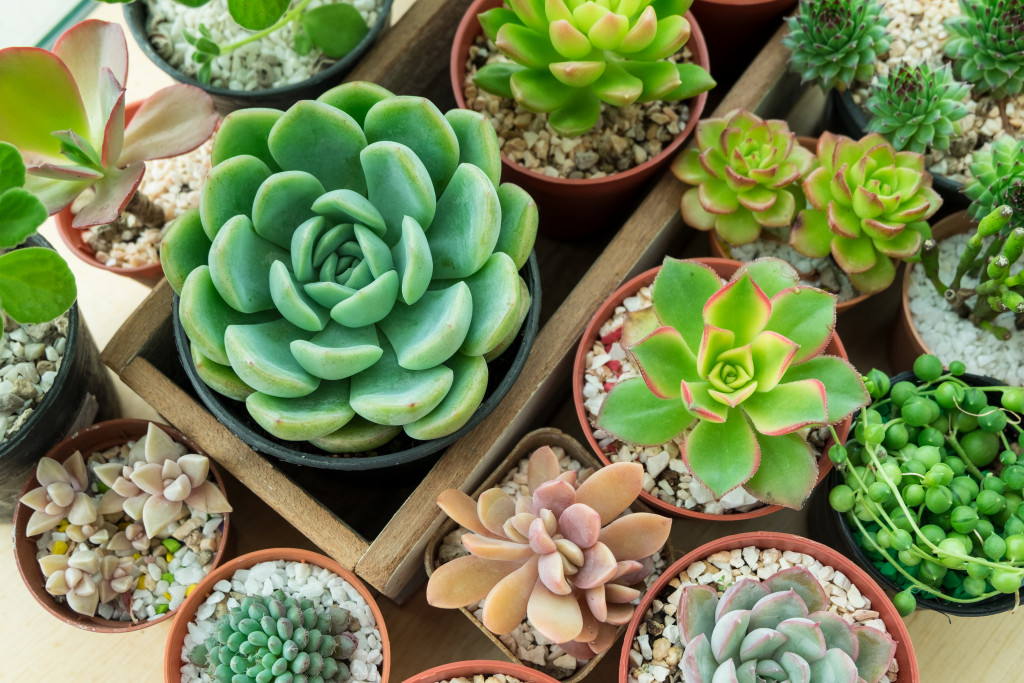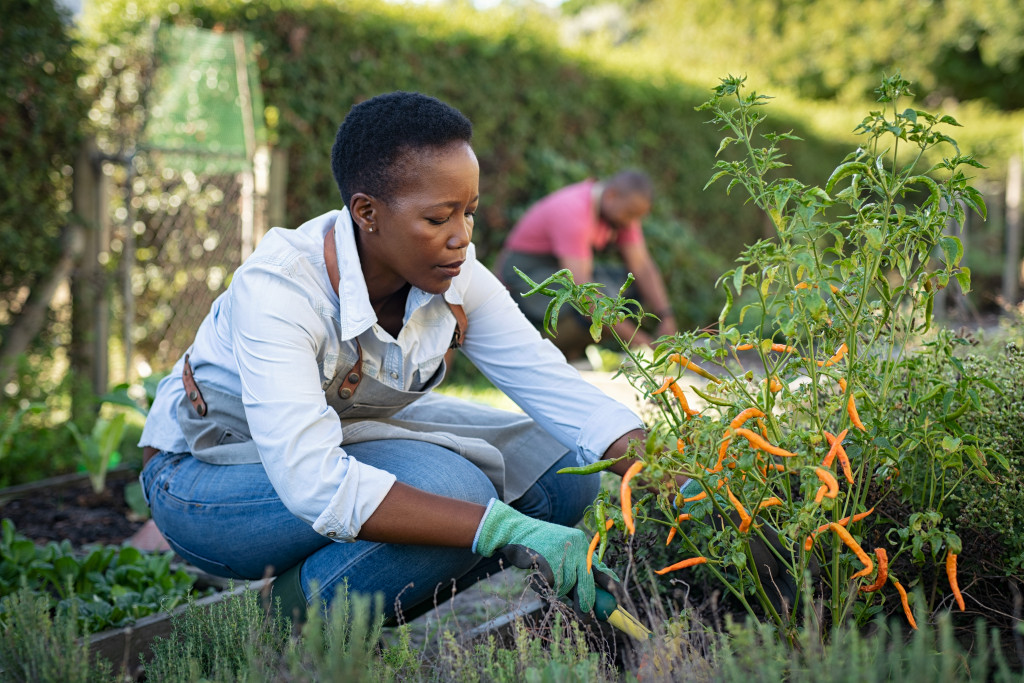- Choose low-maintenance plants that are drought-tolerant and resistant to pests.
- Install an irrigation system or secure hose clamps for watering needs.
- Fertilize regularly with the right type of fertilizer.
- Add a layer of mulch to keep the soil moist and reduce weeds.
- Prune dead and dying branches to keep plants healthy.
- Monitor for signs of disease or pests and contact an expert if needed.
Creating and maintaining a commercial garden can be an intimidating prospect, especially if you are not familiar with the basics of gardening. But having an attractive and well-maintained garden is a great way to add to your business’s curb appeal and create a pleasant environment for customers. Here are some tips on how businesses can maintain a beautiful commercial garden.
Choose the Right Plants
Choosing the right plants is key to keeping your commercial garden looking its best. You want to choose low-maintenance plants that are drought-tolerant and resistant to pests. These types of plants require less water, fertilizer, and pesticides, so so they will save you time and money in the long run. Some great options for garden plants are:
Lavender

Lavender is a beautiful, fragrant herb that is also very easy to care for. It can survive with limited watering and is naturally resistant to pests and diseases. Most gardeners prefer to plant lavender in full sun, but it can still thrive with some partial shade.
Rosemary
This herb is known for its strong and distinct aroma. Rosemary is also drought-tolerant, so it requires minimal watering. It prefers full sun but will tolerate a bit of shade as well. What’s more, rosemary is a great choice for repelling pests, so you don’t have to worry about using too many pesticides.
Succulents
Succulents are low-maintenance plants that can thrive in almost any climate. They require very little water and are resistant to most pests and diseases. Plus, they come in a variety of colors and shapes so that you can add some visual interest to your garden.
Coneflower
Coneflowers are also known for their vibrant and long-lasting blooms. They’re quite easy to maintain as they require minimal water and don’t need much fertilizer. Plus, they look great in almost any landscape design.
Keep it Well Watered
Regardless of what kind of plants you choose for your commercial garden, they will need regular watering. This doesn’t have to mean standing out there with a hose every day—you can install an irrigation system that waters your garden automatically according to your needs. Make sure you check in periodically to make sure everything is working properly, and all of your plants are getting enough water.
However, if you choose to use a hose, it’s important that you secure it properly. A hose clamp is inexpensive and easy to ensure your hose remains securely attached and doesn’t cause any water damage. When your hose is secured correctly, you can be sure that your garden is getting optimal watering and not getting flooded.
Fertilize Regularly

Just like humans need proper nutrition to stay healthy, so do the plants in your commercial garden! Fertilizing regularly will ensure that your plants get the nutrients they need for optimal growth and health. Check with your local nursery or home improvement store for advice on which type of fertilizer is best for the plants in your garden.
In addition, you should always be mindful of the amount of fertilizer you’re using. Too much can cause your plants to become “burned,” and too little won’t do much good.
Mulch and Prune
Adding a layer of mulch to your commercial garden can help keep the soil moist, reduce weeds, and improve your landscaping look. When it comes to pruning, you want to remove any dead or dying branches from your plants to keep them healthy and looking their best. If you’re unsure of how to prune your plants properly, consult a professional for advice.
Moreover, checking your plants periodically for signs of disease or pests is a good idea. If you spot any, contact an expert right away, so they can help diagnose and treat the problem before it gets out of hand.
Maintaining a commercial garden takes effort but can be very rewarding when done correctly! By following these tips–choosing the right plants, keeping it well watered with an irrigation system, and fertilizing regularly–you can create a beautiful outdoor space that will enhance any business’s curb appeal while providing customers with a pleasant environment in which to relax or conduct business meetings outside. So don’t be intimidated by gardening – with just a bit of knowledge and effort, you can keep your commercial garden looking its best!

